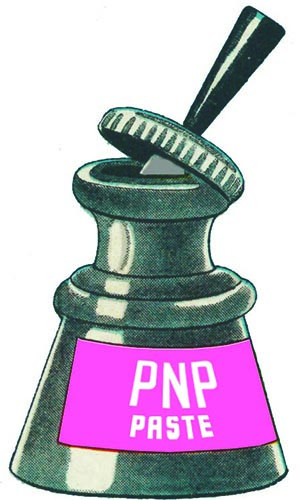You know how it goes. A huge meteor hits earth (thus becoming a meteorite), or perhaps a zombie plague brings us to the brink of extinction. Maybe an environmental catastrophe sees us the forlorn custodians of a desert planet, or a mysterious electromagnetic pulse wipes out nearly all our technology and forces us to loot supermarkets and sift through all our garbage dumps for useful implements.
What happens next? The surviving survivors fight each other for survival, racing around after each other in souped-up cars instead of saving all that petrol to light the BBQ on which to cook the non-survivors for dinner. Sometime we band together against adversity—in these situations, we often return to some kind of semi-agrarian-semi-hunter-gatherer-type lifestyle, often with a bit of new religion thrown in for good measure. Men grow beards (even in some movie versions); women apparently still don’t grow leg hair despite a general lack of razors and waxing establishments. People are dirtier, tougher, better with guns.
And also, often, our language devolves. We use fewer words, and string them together in less and less sophisticated ways. We sound more like children learning to talk (though frequently much less inventive). We say things like ‘tomorrow-morrow land’ (Mad Max: Beyond Thunderdome) and ‘true truth’ (Cloud Atlas).
Now, why should this be? There is no particular evidence to suggest that the Vikings or the Romans or the Picts or any ancient nomads or hunters or farmers had childish language, despite their lack of choice in upholstery fabrics, fusion engines and mobile phones.
Sure, we may need fewer words to describe caffeinated beverages in the future (though I bet we hold onto that last bastion of civilization for as long as we can), but we will probably need more words to describe various types of pox, different kinds of blasted earth (glows in the dark, burns, sentient, stinks of death etc), and of course not forgetting the words we’ll need to describe those indescribable alien invaders who look like nothing we’ve ever seen before.
Language changes, but there is no reason to suppose a “simpler” life results in a simpler language. Even the idea of what constitutes a “simple” life is suspect. Is a simple life one where your daily goal is not to die of starvation, cold, tetanus or mutant bear bite, or one where you aim to reach your daily Fitbit goal of 10,000 steps?
Our relationships will also remain complex and precarious—a failure to observe protocol and cultural norms may be less likely to cause us to be passed over for a promotion and more likely to result in death. What advantage would there be to reducing our ability to express our connections and relationships? Absolutely none. So unless we are being forced to reduce our vocabulary and grammatical complexity by fascist overlords (1984), I see no reason for it to occur. Using simple language to indicate “simpler” times is lazy. And also annoying. [1] Don’t do it.
ALICE CANNON, MELBOURNE
- I mean seriously, those kids in Beyond Thunderdome were more annoying than Ewoks.
Try describing THIS post-apocalyptic scenario with only a handful of nouns and even fewer adjectives. A monster Easter egg, halftone print, published by David Syme & Co, Melbourne, 1 May 1896. State Library of Victoria, IAN01/05/96/12.
CRANK fans! Have you pre-ordered your copy of Materiality: SURFACE? You can do so at the pinknantucket press Pozible campaign page, until 21 September! Sign up to be a subscriber, friend or patron and also receive our annual CRANK zine!


